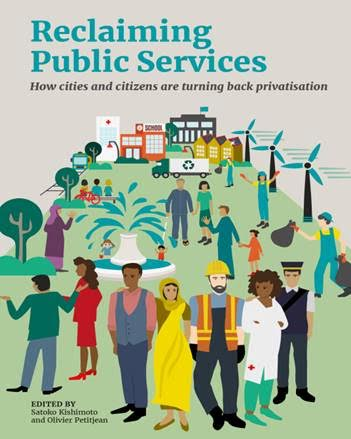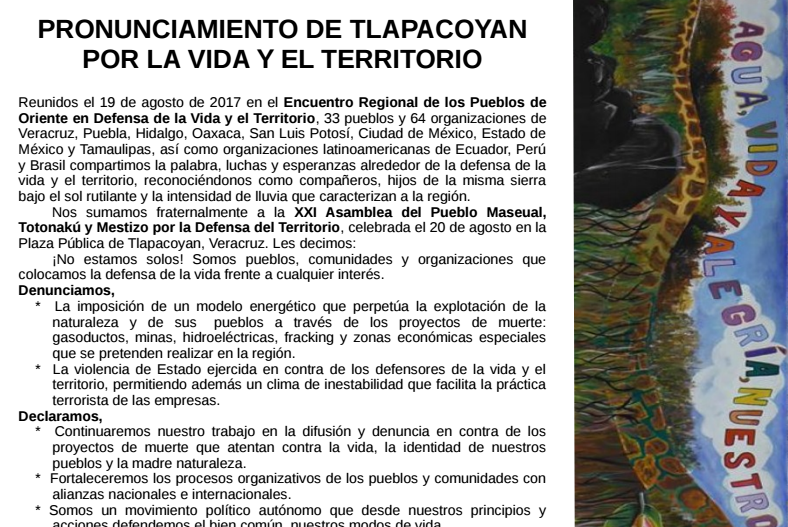Reclaiming Public Services: How cities and citizens are turning back privatisation

The book shows that the wave of cities across the world rejecting privatisation is far bigger and more successful than anyone thought. After having previous focused on the powerful wave of water remunicipalisation, we have with this book extended our focus to look into other public services as well, such as energy, transport, health care and others.
With the help of activists, unionists and researchers from across the world, we documented 835 examples of (re)municipalisation of public services worldwide. In total there have been more than 1600 cities in 45 countries embarking on (re)municipalisation. The book provides an in-depth world tour of new initiatives in public ownership and the variety of approaches to deprivatisation at local and city level. The (re)municipalisation trend has been driven by the failure of austerity and privatisation to deliver promised improvements and investments, but also the wish to meet new goals such as addressing climate change and increasing democratic participation. Remunicipalisation often succeeds in bringing down costs and tariffs, improving conditions for workers and boosting service quality, while ensuring greater transparency and accountability.
See the 1 minute video and thanks for spreading it via twitter and facebook!
Privatisation is failing. This is the alternative: People taking #PublicServices back into public hands https://t.co/9NUd9U9lrk pic.twitter.com/jZxrrLEjsG
— Transnational Institute (@TNInstitute) June 23, 2017
The summary of the book (16 pages) is available in English, French and Spanish. Other languages will follow.
Table of contents:
Introduction The untold story by Satoko Kishimoto
Chapter 1 Remunicipalisation in France: From addressing corporate abuse to reinventing democratic, sustainable local public services by Olivier Petitjean
Chapter 2 Why renationalise? Contemporary motivations in Latin America by M’Lisa Colbert
Chapter 3 The 835 reasons not to sign trade and investment agreements by Lavinia Steinfort
Chapter 4 Norwegian municipalities bringing social services back into public hands by Bjørn Pettersen and Nina Monsen
Chapter 5 Remunicipalisation in Germany and Austria: What does it mean for employees? By Laurentius Terzic
Chapter 6 Against the grain: New pathways for essential services in India by Benny Kuruvilla
Chapter 7 Unpacking the dangerous illusion of PPPs by María José Romero and Mathieu Vervynckt
Chapter 8 Our City, Our Grid: The energy remunicipalisation trend in Germany by Sören Becker
Chapter 9 Public ownership is back on the agenda in the UK by David Hall and Cat Hobbs
Chapter 10 A citizen wave to reclaim public and democratic water in Catalan municipalities by Míriam Planas
Conclusion Cities and citizens are writing the future of public services by Olivier Petitjean
The book is published by Transnational Institute (TNI), Multinationals Observatory, Austrian Federal Chamber of Labour (AK), European Federation of Public Service Unions (EPSU), Ingeniería Sin Fronteras Cataluña (ISF), Public Services International (PSI), Public Services International Research Unit (PSIRU), We Own It, Norwegian Union for Municipal and General Employees (Fagforbundet), Municipal Services Project (MSP) and Canadian Union of Public Employees (CUPE).
Your feedback is welcome and valuable. Contact us if you want to share your stories of de-privatisation. Your initiative to translate the summary and/or the book is most welcome!
In solidarity,
Satoko Kishimoto
on behalf of the co-publishers






